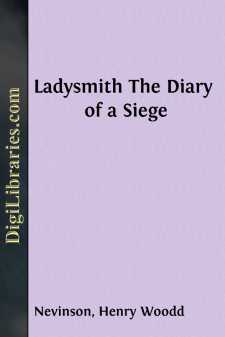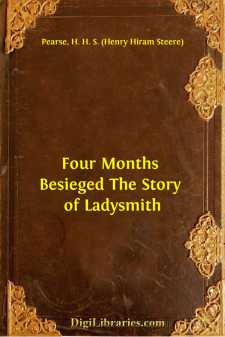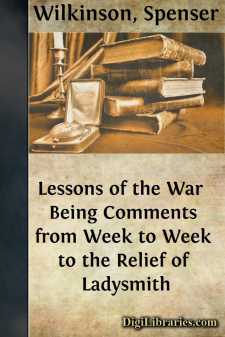History
- Africa
- Americas (North Central South West Indies) 50
- Ancient 68
- Asia 58
- Australia & New Zealand 8
- Canada 41
- Caribbean & West Indies 1
- Civilization 20
- Eastern Europe 12
- Europe 310
- Expeditions & Discoveries 60
- General 77
- Historical Geography 1
- Jewish 9
- Latin America 3
- Medieval 8
- Middle East 13
- Military 248
- Revolutionary 8
- Study & Teaching 5
- United States 353
- Western Europe 56
- World 13
Africa Books
Sort by:
CHAPTER I. Convention of London, February 27, 1884. A Convention Between Her Majesty the Queen of the United Kingdom of Great Britain and Ireland and the South African Republic. Whereas, The Government of the Transvaal State, through its Delegates, consisting of Stephanus Johannes Paulus Kruger, President of the said State, Stephanus Jacobus Du Toit, Superintendent of Education, and Nicholas Jacobus...
more...
by:
Dr. Henri Blanc
CHAPTER I. The Emperor Theodore—His Rise and Conquests—His Army and Administration—Causes of his Fall—His Personal Appearance and Character—His Household and Private Life. Lij Kassa, better known as the Emperor Theodore, was born in Kouara about the year 1818. His father was a noble of Abyssinia, and his uncle, the celebrated Dejatch Comfou, had for many years governed the provinces of...
more...
CHAPTER I ON THE EDGE NEWCASTLE, NATAL, Thursday, October 5, 1899. Late last Sunday night I found myself slowly crawling towards the front from Pretoria in a commandeered train crammed full of armed Boers and their horses. I had rushed from the Cape to quiet little Bloemfontein, the centre of one of the best administered States in the world, where the heads of the nation in the intervals of discussing...
more...
by:
F. W. Reitz
INTRODUCTION. BROTHER AFRICANDERS! Once more in the annals of our bloodstained history has the day dawned when we are forced to grasp our weapons in order to resume the struggle for liberty and existence, entrusting our national cause to that Providence which has guided our people throughout South Africa in such a miraculous way. The struggle of now nearly a century, which began when a foreign rule was...
more...
by:
Samuel Johnson
INTRODUCTION. Jeronimo Lobo was born in Lisbon in the year 1593. He entered the Order of the Jesuits at the age of sixteen. After passing through the studies by which Jesuits were trained for missionary work, which included special attention to the arts of speaking and writing, Father Lobo was sent as a missionary to India at the age of twenty-eight, in the year 1621. He reached Goa, as his book...
more...
CHAPTER I INTRODUCTORY The declaration of war—Sir George White and the defence of Natal—The force at Glencoe—Battle of Talana Hill—General Yule's retirement—Battle of Elandslaagte—Useless victories—Enemy's continued advance. Before taking up the history of the siege proper it will be well here to pass briefly in review the events which led up to the isolation and investment of...
more...
CHAPTER I STEAMING SOUTH R.M.S. 'Dunottar Castle,' at sea: October 26, 1899. The last cry of 'Any more for the shore?' had sounded, the last good-bye had been said, the latest pressman or photographer had scrambled ashore, and all Southampton was cheering wildly along a mile of pier and promontory when at 6 P.M., on October 14, the Royal Mail steamer 'Dunottar Castle' left...
more...
by:
Johanna Brandt
THE PETTICOAT COMMANDO CHAPTER I THE SCENE OF ACTION When, on October 11th, 1899, shortly before 5 o'clock in the afternoon, martial law was proclaimed throughout the Transvaal and Orange Free State, South Africa, and after the great exodus of British subjects had taken place, there remained in Pretoria, where the principal events recorded here took place, a harmonious community of Boers and...
more...
THE THEATRE OF THE WAR The war in South Africa has been no exception to the general rule that the origin of current events is to be sought in the history of the past, and their present course to be understood by an appreciation of existing conditions, which decisively control it. This is especially true of the matter here before us; because the southern extreme of Africa, like to that of the American...
more...
THE EVE OF WAR The next six weeks will be an anxious time for the British Empire. The war which begins as I write between three and four on Wednesday afternoon, October 11th, 1899, is a conflict for supremacy in South Africa between the Boer States, their aiders and abettors, and the British Empire. In point of resources the British Empire is so incomparably stronger than the Boer States that there...
more...











